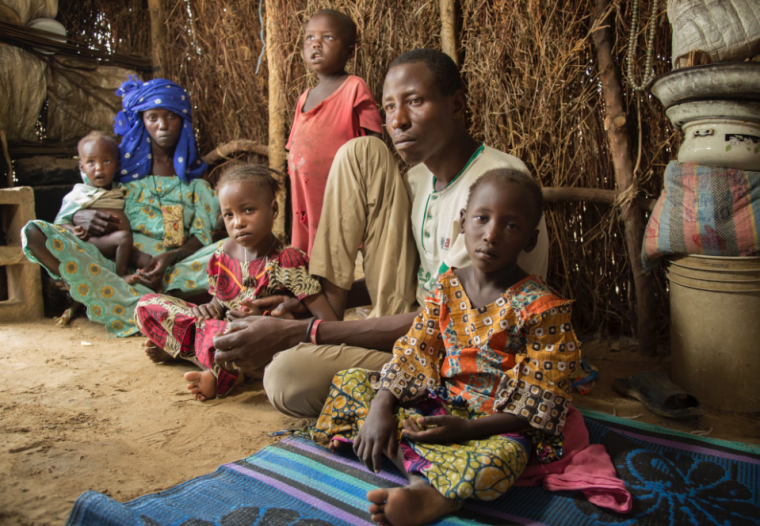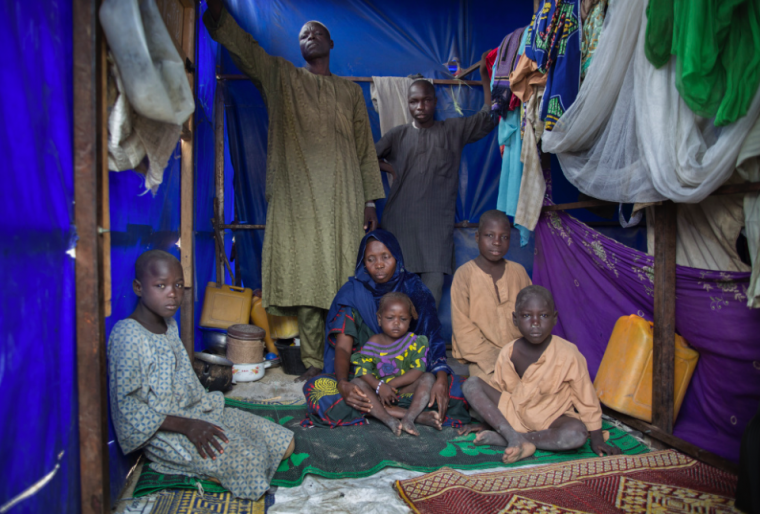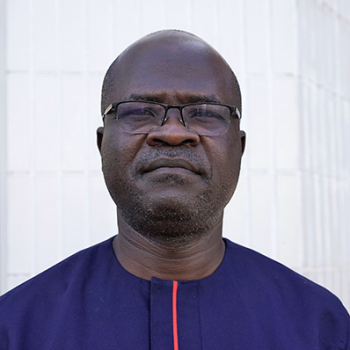Forgotten and forsaken? Africa's humanitarian crises
Two weeks ago the United Nations released its annual report on the state of the world's emergencies. Its forecast, outlined in the Global Humanitarian Overview 2019, makes for grim reading.
The report reveals that there are now more crises affecting more people and lasting longer than a decade ago. Meanwhile, next year 131.7 million people will need humanitarian assistance, worth $21.9bn, to help them stay alive.
Of the eight countries that need more than a billion dollars of aid next year, six are in my home continent, Africa. For myself and my colleagues at Christian Aid, this comes as no surprise, sadly. For some time, we have been sounding alarm bells about these crises on the continent – many of which are under-reported and vastly under-resourced.

The primary area of concern right now, for me, is the Democratic Republic of the Congo (DRC). This is home to an acute, protracted crisis that has left nearly 13 million facing food shortages, including over 4 million children who are malnourished.
In the DRC, conflict keeps popping up almost everywhere, from Kasai to the Kivus. It's one of the world's forgotten crises, making it extremely challenging to raise funds for it. Meanwhile, the country is battling an Ebola outbreak that it is ill-equipped to handle, while elections taking place later this month risk sparking further violence.
The second area of concern is north-east Nigeria, where ongoing Boko Haram insurgency has wreaked intolerable damage. In 2019, some 7 million Nigerians will need assistance, the vast majority women and children. Although the government is making progress reclaiming territory from insurgents, returning home is still not an option for most of the massive displaced population, due to severe insecurity. The ever-present danger means it is an incredibly difficult place to deliver aid.
Thirdly, South Sudan: a country that marks the fifth anniversary of a deadly civil war this last weekend (December 15). Despite some recent positive moves towards political reconciliation, hunger and hardship continue to be rife. Years of violence have left 7 million civilians in desperate need, including some 4.5 million people who have been uprooted from their homes.
We are also concerned about the Sahel, the western belt of Africa: mainly Burkina Faso and Mali, where the humanitarian situation has severely deteriorated. A combination of drought, jihadist insurgency and inter-ethnic conflict makes it very hard to access vulnerable communities.

With the vast scale of need, one thing is certain: we cannot afford to keep providing food and shelter and water while turning our backs on the root causes of these catastrophes.
Conflict is the defining factor in all these crises in Africa – and indeed, those in Yemen and Syria, to name a few. Where there is conflict, there is poverty, death, disease and displacement. Today, more people are being uprooted by war and armed violence than ever before, says the UN.
That's why our New Year's resolution – as an international community – should be to roll up our sleeves and engage in the often complex, messy, long-term business of peace-building.
This means investing more funds in addressing the structural drivers of violence and war, whether local or global. Causes such as political instability, weak governance, civil unrest, inter-ethnic tension, religious ideology or competition for natural resources triggered, for example, by climate change.
Unless we address the conflict that wrecks lives and drives families from their homes, we will never see sustainable, meaningful change. But where there is lasting peace, people can return to their land, be self-reliant and truly experience a life of dignity, equality and justice.

I have witnessed, first-hand, the efforts of colleagues and Christian Aid partners who collectively are bringing relief to hundreds of thousands of people in Nigeria, the DRC, the Sahel and South Sudan, and helping to build their resilience to crises so they're better equipped to cope when disaster strikes.
But this important work would be worth little without peace-building work we do in many of these fragile communities – for instance in South Sudan, where we partner with groups such as the South Sudan Council of Churches (SSCC), who strive determinedly to build harmony, reconciliation and sustainable peace.
Yes, the scale of the task can often feel overwhelming. But we must be relentless in our quest for peace, for the sake of our global neighbours in Africa and beyond. Let's make sure they are neither forgotten nor forsaken in 2019.
Maurice Onyango is Christian Aid's head of humanitarian programmes for Africa, based in Nairobi.
Christian Aid's Christmas appeal focuses on efforts to tackle conflict. For more information visit www.christianaid.org.uk/christmas











